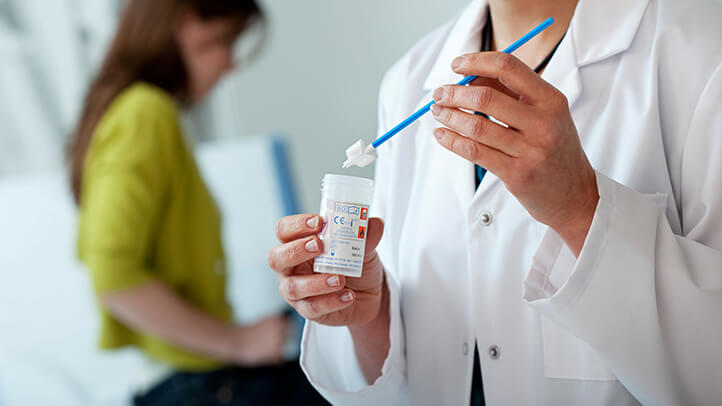PAP SMEAR
The Pap test (named in honor of Georgios Papanicolaou, a Greek doctor who was a pioneer in cytology and early detection of cancer), also called vaginal cytology, is a complementary examination performed to diagnose cervical cancer.
The objective of this test is to find the changes in cervical cells that are precursors of cancer, before they start causing symptoms and allowing treatments to be effective.

 THE SAMPLES USED FOR THIS TEST ARE TAKEN FROM THREE SITES:
THE SAMPLES USED FOR THIS TEST ARE TAKEN FROM THREE SITES:
Endocérvix, que es el orificio que comunica con el útero.
Endocérvix, que es el orificio que comunica con el útero.
Vagina, is an elastic fibromuscular duct, which is part of the internal genital organs of women, and extends from the vulva to the uterus.
If the study is performed during pregnancy, the sample will not be taken from the endocervix, but only from the external cervix and vagina.
 WHO SHOULD HAVE A PAP TEST?
WHO SHOULD HAVE A PAP TEST?
In general, doctors recommend starting a Pap test at age 21.
It is recommended that women between the ages of 21 and 65 repeat the Pap test every three years.
 IF THEY TELL ME THAT MY PAP IS ABNORMAL, DOES THAT MEAN I HAVE CANCER?
IF THEY TELL ME THAT MY PAP IS ABNORMAL, DOES THAT MEAN I HAVE CANCER?
No. Cancer is usually not the reason why the result of your Pap test is abnormal. The most common reason for an abnormal Pap test is a vaginal or cervical infection that causes changes in the cells of your cervix. It is possible to keep track of most of these cell changes until the results return to normal.
WHAT SHOULD I WORRY ABOUT AFTER A COLPOSCOPY?
Heavy vaginal bleeding (more intense than your usual menstrual period).
A bright red vaginal bleeding and you are not at the time of your period.
A vaginal discharge with a strong odor (which is not that of blood).
Severe abdominal / pelvic (belly) pain.
Temperature greater than 100.4 ° F / (38 ° C).
Call us immediately